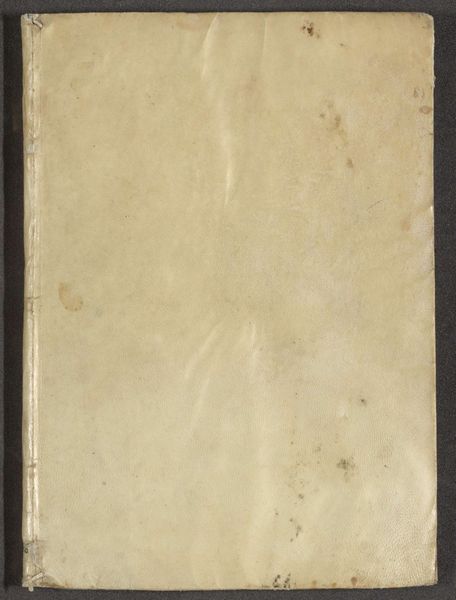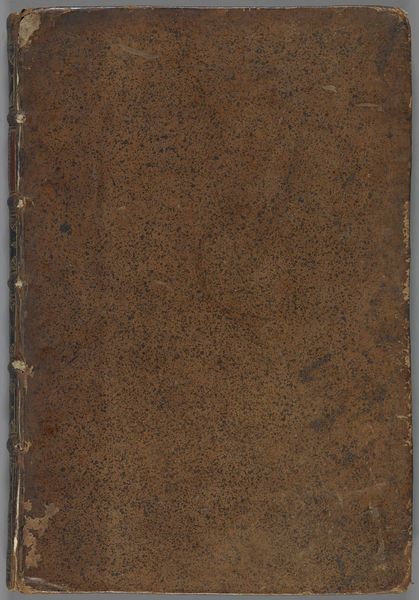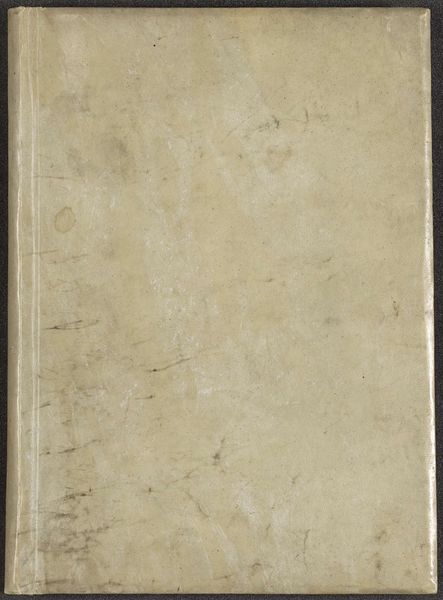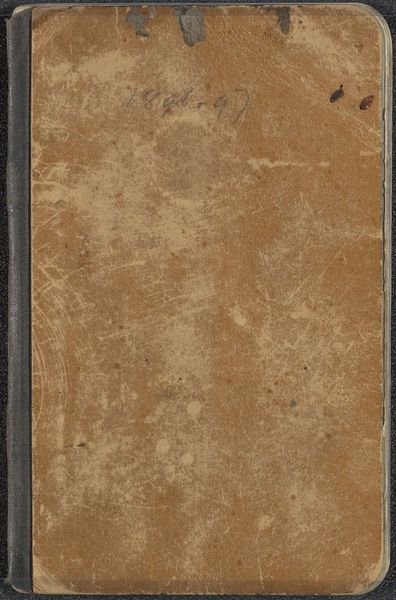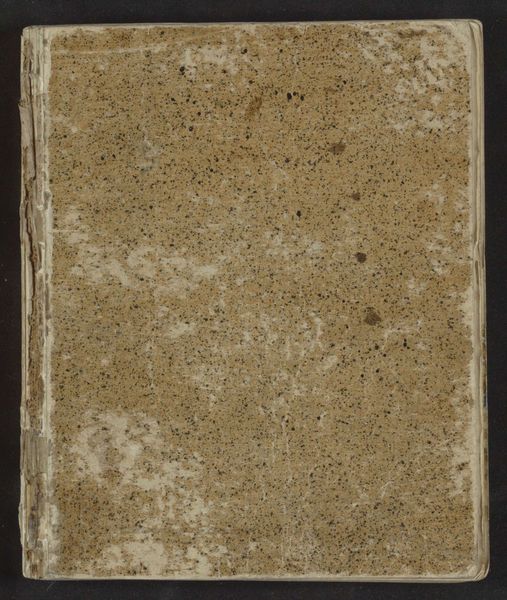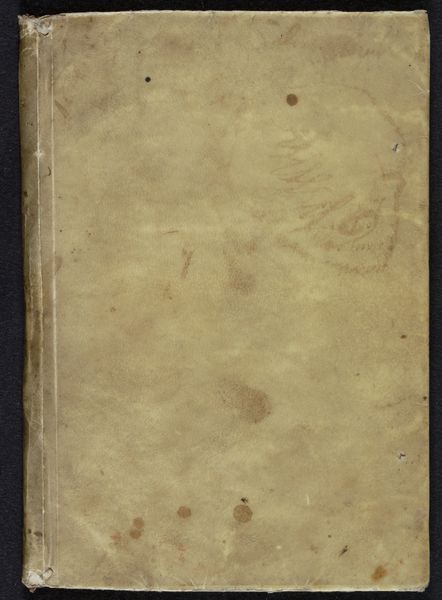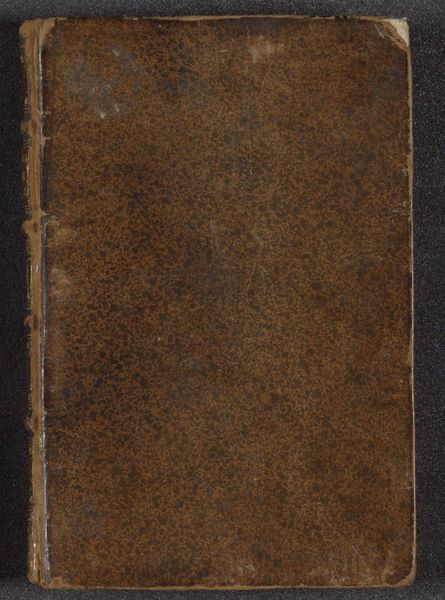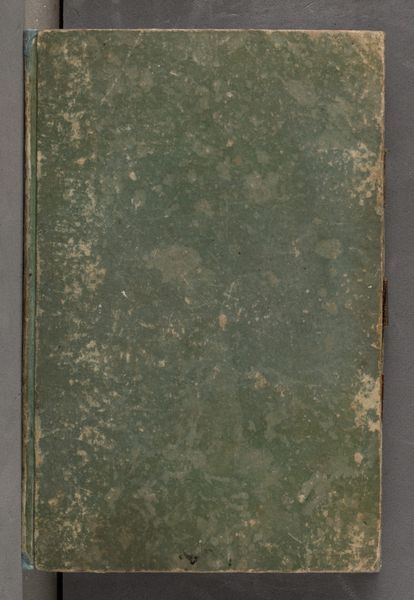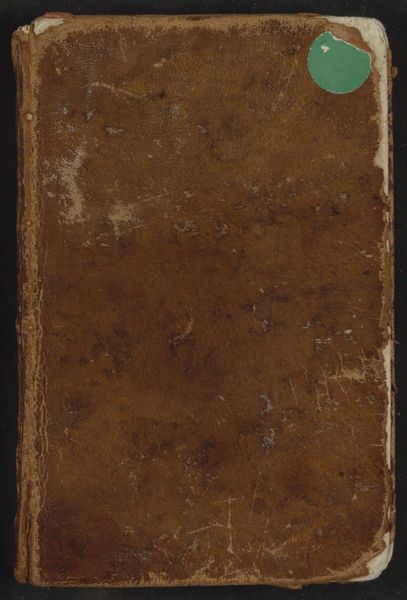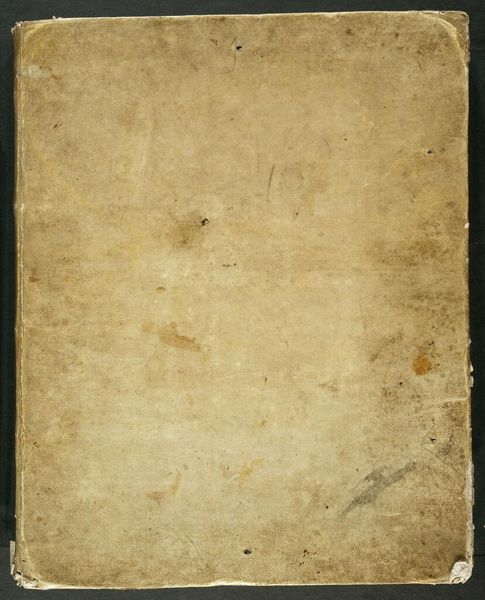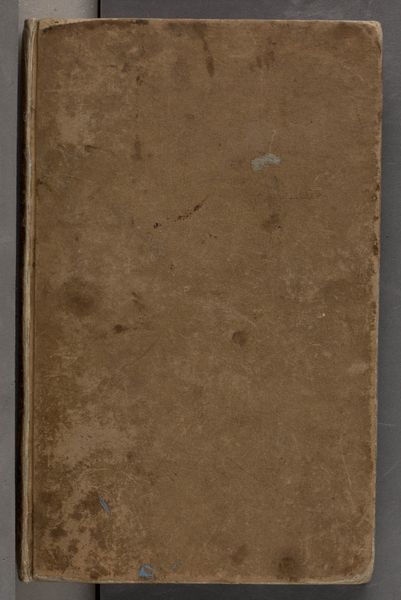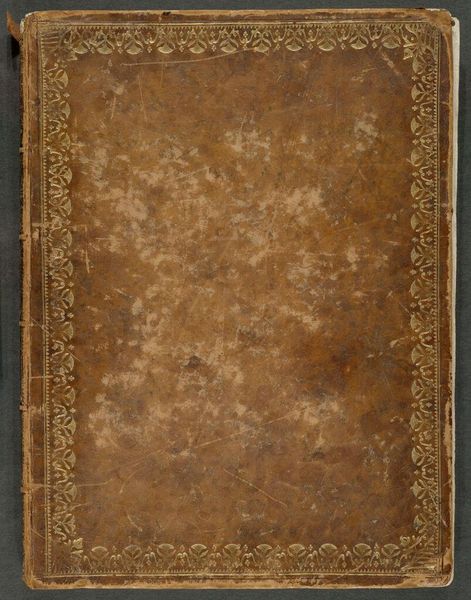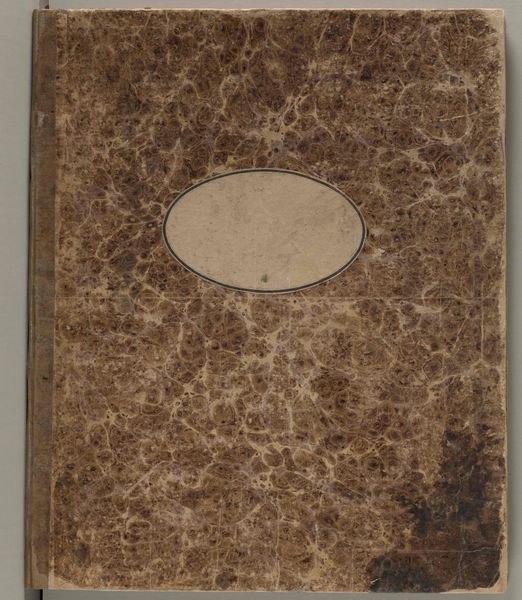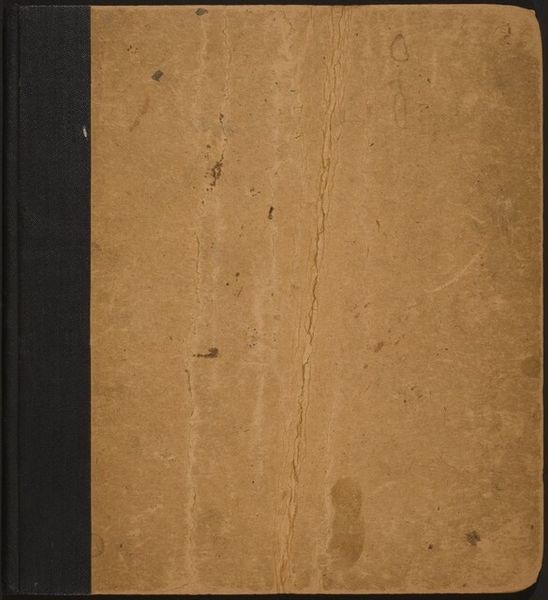
drawing, graphic-art, tempera, paper
#
drawing
#
graphic-art
#
toned paper
#
medieval
#
tempera
#
worn
#
book
#
paper
Dimensions: height 182 mm, width 119 mm, thickness 26 mm, width 248 mm
Copyright: Rijks Museum: Open Domain
Editor: So, this is “Sketchbook with 105 leaves,” dating from 1710 to 1772, by Petrus Johannes van Reysschoot. It looks so… humble. Just this aged paper, the marks of time. What significance might something like this hold? Curator: More than you might think! A seemingly simple object like this becomes a powerful carrier of cultural memory. What do you notice about the materials and their condition? Editor: Well, it's obviously been handled a lot. It looks worn, almost fragile. And the use of paper and tempera, along with the label ‘drawing’, suggests intimate, perhaps daily, artistic practice. Curator: Exactly. Think about it: paper as a ground holds specific symbolic weight, doesn’t it? What did paper represent in the 18th century, especially in contrast to, say, vellum or a wall? It wasn’t just a surface, but also signified a move toward wider access to knowledge and artistic expression. It represents something of an opening up… Editor: So, the sketchbook is a physical manifestation of evolving ideas around art itself? Not just the content, but the object? Curator: Precisely. And note the ‘medieval’ tag; perhaps these sketches represent the artist’s, or even the culture's, attempt to remember or reimagine that past. What is it about that period which continued to resonate? Editor: So this isn’t just a sketchbook, but a layered cultural artifact. I didn't expect to think about access to knowledge and historical yearning when looking at what seems like just an old book. Curator: It holds echoes of continuity and change, visible in its very materiality. The personal and the cultural intertwine. Editor: That’s given me so much to think about regarding the images *inside*. Thanks.
Comments
No comments
Be the first to comment and join the conversation on the ultimate creative platform.
